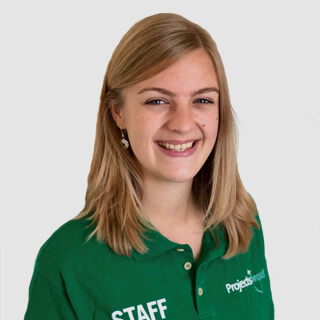As an occupational therapy student mid-way through my degree at the University of Sydney, I had always wondered what my future profession would look like in practice within a developing country. I also desired to challenge myself to get out of my comfort zone and expand my worldview. This, combined with a love of Vietnamese food, led me to undertake my volunteer project in Vietnam. I volunteered for over four weeks with a fellow OT student whom I studied with at university.
Arriving in Vietnam
On arrival in Vietnam, I spent the first couple of days with my mouth hanging half open in awe as I witnessed and became a part of the hustle and bustle of Hanoi. Crossing the street was the first challenge that we overcame. A mix of motorbikes, bicycles, taxis, cars and buses rush through the unmarked streets, somehow managing to avoid pedestrians walking on the side of the road as well as those crossing the road. For the first week, we high-fived after each successful crossing with a feeling of accomplishment, but soon enough we knew all the tips and tricks to crossing the busy streets.
Our Occupational Therapy Project
Our placement was at a residential village for Vietnam War veterans and for children and adults with disabilities resulting from the intergenerational health effects caused by Agent Orange, a toxic herbicide that was used by the American military during the Vietnam War. The village provides a home for them, as well as special education classes, living skills classes (i.e. gardening), vocational training including sewing, card and paper flower making and training in Photoshop for those with the functional capacity, as well as physiotherapy and medical care.
We spent most of our time in the therapy room, working with the children and adults from 13-30 years old. Most of them presented with cerebral palsy like characteristics, motor difficulties including abnormal gait, hemiparesis, or increased tone in limbs, as well as hearing impairments, learning delays, and speech difficulties. We worked in the therapy room from 8:30-10:30 am, followed by playing with the kids (showcasing our poor badminton skills) and helping out at feeding time, a 2.5-hour lunch break (commonly known to the Vietnamese as ‘naptime’), before resuming therapy from 2:30-4:30 pm.
Working as an occupational therapy student in a country where our profession is not widely recognised came with its own set of challenges which we had to navigate. We were lucky to have local university students as translators (as well as Vietnamese teachers) and found that making the conscious effort in learning Vietnamese to form relationships with both our clients and the physiotherapists working in the therapy room was key to working effectively. Much of the therapy we provided involved building fine motor skills, providing cognitive practice and improving balance through games, as well as helping with daily activities and typing on the computer for a client who worked with Photoshop.
Free time in Vietnam
We stayed at one of the two Projects Abroad volunteer houses with fellow volunteers from around the world. Sharing this experience with one another was one of the highlights of my time in Vietnam - my volunteer family were a valuable source of support after long days, and I have formed many treasured friendships as a result.
On the weekends we visited Halong Bay and Ninh Binh, got lost in Old Quarter, and saw many of the attractions of Hanoi together. I became good friends with our friendly translators and enjoyed many day trips and evenings with them, learning about their culture and about what life is like for university students in Vietnam. I’d be lying if I didn’t come to South-East Asia without some worries about eating the street food – but these fears soon disappeared and we spent many a night sitting on low plastic stools and tables eating food on the footpath as motorbikes and cars rushed by beside us.
Final thoughts
If you’re considering going on a volunteer experience like no other, this is it! Everyone will be nervous at first and the thought of spending four weeks in a completely new country where an entirely different language is spoken seems daunting, to say the least. But my advice would be to face your fears and do it. You won’t regret it and you will return home with a smile on your face and a head full of precious memories. Vietnam will always hold a special place in my heart. A country filled with warm people, delicious food and a place rich in history.

Are you interested in joining this project?
If so, one of our experts can help.
Contact Us on:
This is a personal account of one volunteer’s experience on the project and is a snapshot in time. Your experience may be different, as our projects are constantly adapting to local needs and building on accomplishments. Seasonal weather changes can also have a big impact. To find out more about what you can expect from this project we encourage you to speak to one of our friendly staff.
Our accreditations



















